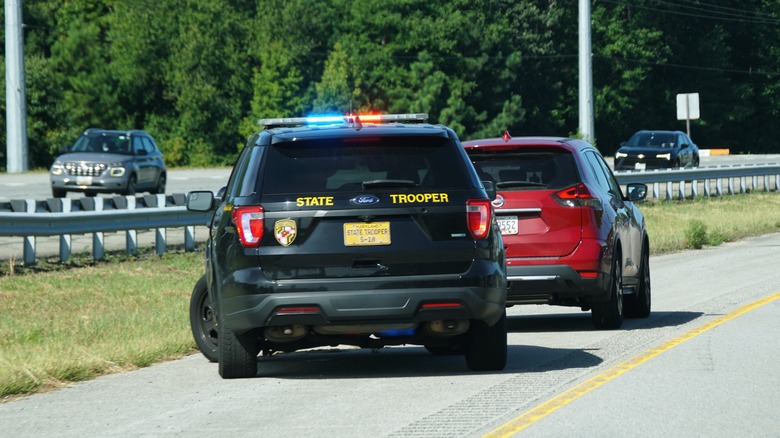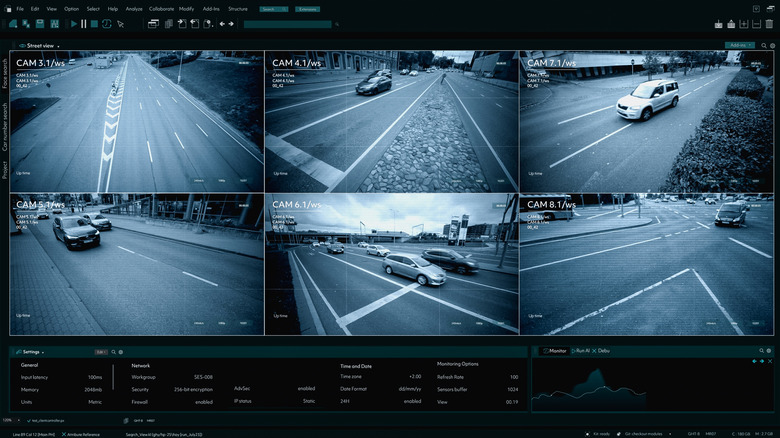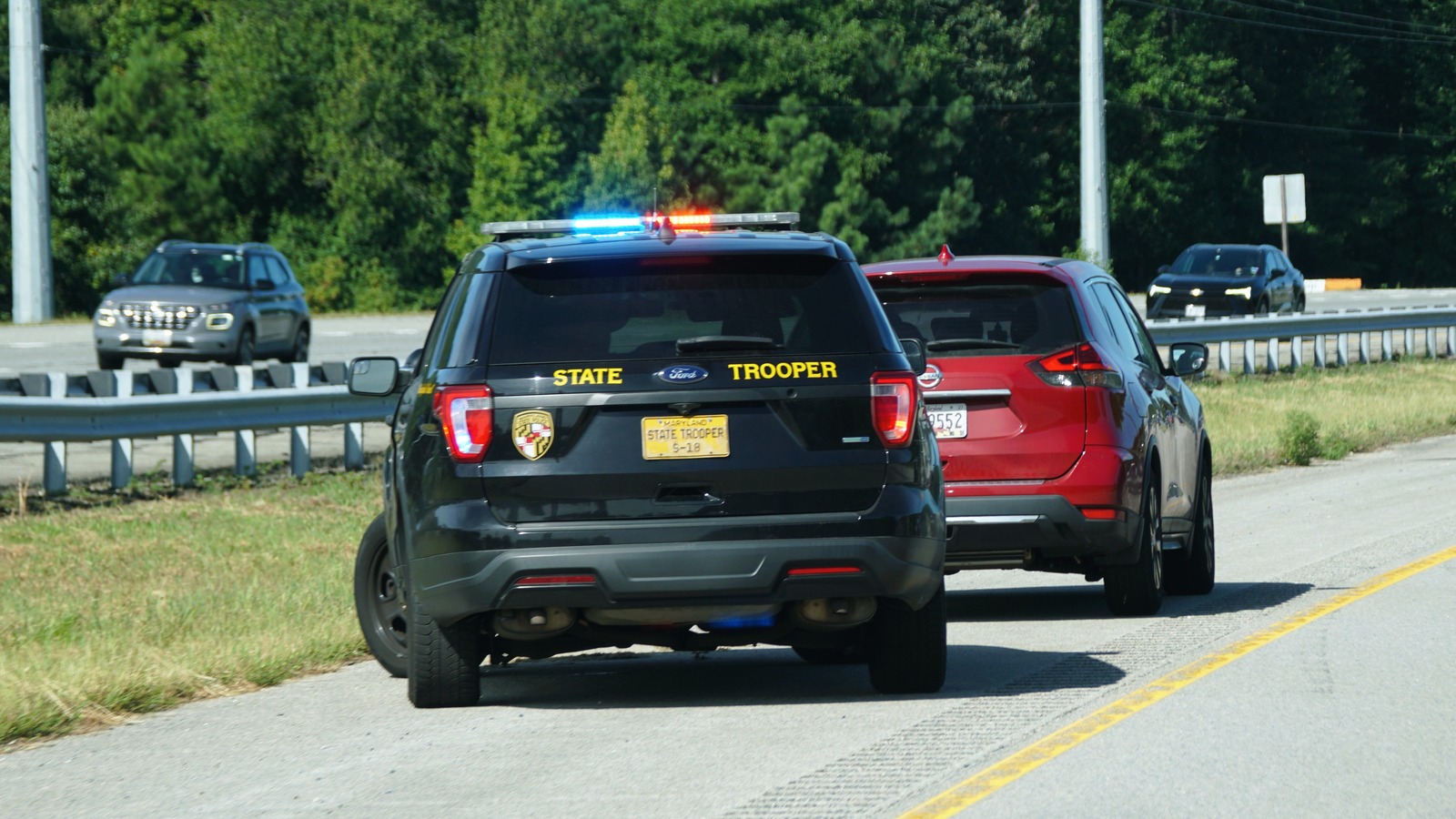 Khairil Azhar Junos/Shutterstock
Khairil Azhar Junos/Shutterstock
Speeding is one of the more common mistakes that drivers make, and A new tiered speed camera law that went into effect in October 2025 as part of its "SafeZones" program means you can be fined regardless of whether you were actually driving. The system uses a registered‐owner-liability model, which means Maryland issues the citation (up to $425) to the vehicle's registered owner, no matter whether the owner was driving at the time of the violation. All potential violations that are caught by the jurisdiction's SafeZone cameras are reviewed and certified by a law enforcement officer or an ASE system contractor before a ticket is mailed to the registered owner, making sure the process is correct and compliant with Maryland law.
According to mdcourts.gov, speed camera citations are issued to the registered vehicle's owner as a civil violation under Transportation Article §21-809, but even though Maryland usually holds the registered owner responsible, the owner of the vehicle can appeal the citation by submitting a sworn statement identifying the actual driver at the time of the violation, together with any supporting evidence. This process is not automatic and requires the owner to submit a request for a hearing, which must be reviewed by the court or an authorized administrative office. While the registered owner can pay the citation by mail, contesting it requires a court appearance and cannot be resolved by mail. A vehicle that has been reported stolen is the only instance where liability can be shifted to another driver after a review. Other states like Ohio and the District of Columbia have their own procedures for shifting liability or contesting camera-issued citations, however Maryland's system requires a manual review and a formal court or administrative hearing to contest the citation.
How Registered-Owner Speeding Citations Work Across the U.S.
 Gorodenkoff/Shutterstock
Gorodenkoff/Shutterstock
National transportation data indicates over 20 states have implemented some sort of automated speed camera system in addition to traffic-light cameras to catch violators who run red lights, with states like Arizona, Colorado, and Illinois using the same registered-owner model. States including Texas and New Jersey have banned the system completely due to concerns over privacy and fairness. Arizona on the other hand, has been trying to ban its system, resulting in it being voted on multiple times. However, the many states that do allow speed camera systems leave the installation decision up to individual cities or counties. This lack of uniformity is why a driver could receive a mailed citation in one jurisdiction but not another, even within the same state. Some jurisdictions that use automated speed cameras rely on a registered-owner liability approach for administrative practicality's sake. For instance, the general legal default for moving violations (when a police officer stops a vehicle) is that the driver is responsible, even if the vehicle belongs to someone else.
Well, automated enforcement makes that complicated, and the owner liability approach more feasible. But according to the National Highway Traffic Safety Administration (NHTSA), a driver-liable approach may be a more involved process, and taking pictures of the driver may cause privacy issues, which are the reasons for it being banned in the two previously mentioned states. In Ohio, a registered owner is not responsible for a traffic law violation if they provide notice within 30 days identifying the actual driver, and under the 2024 "STEER Act", in the District of Columbia, the jurisdiction is prosecuting out‐of‐state vehicle owners for unpaid tickets, including camera‐issued ones, according to the Washington Post. With this in mind, check the laws in your local area and be careful who you let drive your vehicle. This will ensure you won't get any surprise speeding tickets sent to your home.




